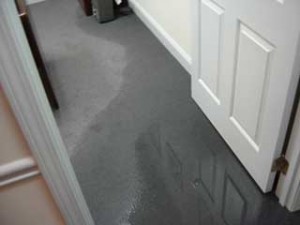
1. Thoroughly Clean Your Gutters.?
Gutters must be cleared of particles to permit the movement of water away from your roof. Any accumulation may trigger water to pool up in particular places and exactly where it does it has the potential to find porous places in your roof exactly where it can seep in and lead to water harm.
3. Verify The Pipes.
Clogs are a normal trigger of water harm when water backs up behind them and spills out into your house. This can be avoided through normal upkeep of your plumbing method. It may appear like a do once job but pipes erode and drop apart like every thing else. You can prevent them from failing and destroying your belongings by having a expert verify them each five years or so.
4. Drip The Lines.
During the winter months pipes can freeze and then crack or burst if there is frozen water in them. When water freezes it expands and can trigger the pipes to break up in the process. If this occurs it usually outcomes in huge amounts of water flooding your house. Dripping the lines will make sure that there is a continuous yet minute movement of water that does not freeze and this will conserve your pipes.
5. Verify Your Pumps.
Sump pumps may conserve your entire house from water harm if you have a flood or pipe burst, so it is crucial to make sure that they operate when needed. You can verify them your self, or have a expert inspect them for additional peace of mind.
6. Snow Sweep Your Roof.
During the winter, if the pitch of your roof catches snow accumulation, then you may need to clear it off to steer clear of a cave in or ceiling leak. If you are trying to do this your self, don’t use water to soften it off as this will only re-freeze and most likely trigger more problems.

7. Insulate Your Pipes.
If feasible try and put insulation around your pipes that are exposed to intense temperatures ding the winter months. This will help maintain them from freezing with water inside and that will help you steer clear of pipe bursts.
8. Flush Appropriately.
Many individuals try and flush things that should not be flushed. Attempt to steer clear of flushing anything down the toilet in addition to squander and toilet paper. Never flush hygiene products, infant wipes, cat box squander, plastic of any kind, or even dental floss. All of these things, and numerous other items like them will produce small clogs in your system and eventually they will cost you much more than the extra time it would have taken to just throw them away.
9. Verify The Hoses.
The hoses that accompany your dishwasher, clothes washer, fridge, ice upper body, water purifiers and other water intensive appliances don’t last permanently. Plastic degrades with temperature fluctuation and even sunlight and all of these hoses ought to be replaced each five to eight years to steer clear of ruptures.

10. Conserve The Grease.?
Never pour grease down your drains. Grease may seem like a liquid when it’s still hot in the pan, but when it cools down it will congeal and mix with other particles in your drain and produce clogs that may eventually trigger water harm through a backup in your house.
